On November 13, 2023, Niedersachsen Ports GmbH & Co KG (NPorts) organized an information event entitled “Intelligent solutions for generating renewable energy in ports” in Emden.
The event took place as part of the INTERREG project REDII Ports.
Aiko Hollander and Hanne Hollander (Niedersachsen Ports GmbH & Co KG) opened the event and pointed out the need for research and implementation of 0sustainable measures in port areas, just like the project REDII ports offers.
Moderator Matthäus Wuczkowski (Niedersachsen Pots GmbH & Co KG) presented the REDII Ports project in general and the NPorts measures planned. The focus lays on innovative small-scale solutions in the areas of wind- and solar energy production technologies.
“Large systems to produce renewable electricity make economic and ecological sense. However, large systems such as wind turbines cannot be approved in the port regulatory wise, others require complex approval procedures or have to meet various requirements on the way to implementation. Between the option of only relying on large-scale systems and doing nothing, there must be further implementation and application options,” says Wuczkowski. This is where NPorts comes in as part of the REDII Ports project.
The first steps are to determine small-scale solutions that are market ready (this includes a technical and market regulatory assessment of the solutions) and to identify suitable test fields in the port of Emden.
In a second step, the test fields serve to validate the identified small scale solutions’ economical feasibility in real operation.
Eva Romeis (Psychologists 4 Future) looked at how people can act in the face of major challenges such as the climate crisis. In particular, she also presented the human defensive mechanisms that must be overcome in order to take action, including the “diffusion of responsibility” (Why should I change, and others carry on as before?). It was highlighted that comparatively few actors are needed to enable a positive tipping point. I.e. a group of like-minded people who can bring about social change.
In this respect, projects that are funded by the European Regional Development Fund (ERDF) and bring together various actors from the European Union can definitely provide an impetus in the right direction.
Monika Noormann (NettCon Energy GmbH) then spoke about the challenges companies face in energy transformation. CO2 is the new currency and is expressed in various German laws (e.g. Climate Protection Act, Energy Efficiency Act, Energy Services Act, Supply Chain Act, Building Energy Act, and CSR Directive Implementation Act). This means that if the CO2 footprint in a product is too large, a company most likely might have difficulty selling it on the market in the future.
Energy-related greenhouse gas emissions in Germany accounted for around 84% in 2021. Accordingly, the conscious use of energy and alternative energy production are moving into the focus of the field of action. Increasing efficiency and electrification are important variables, also for port operations to lower the emission footprint.
She promoted the REDII Ports project as valuable because the knowledge is developed collaboratively, is implemented in practice, insights are shared and we grow together!
Mathias Muth (NettCon Energy GmbH) then presented the first results from NPort’s potential study for the port of Emden in the framework of REDII Ports. Accordingly, the port of Emden emits 211,000 t of CO2 annually with its electricity, natural gas and diesel consumption. This is equivalent to the weight of 35,000 fully grown elephants!
In the study, heat and electricity consumption in the port of Emden was identified, quantified and clustered. Clusters with high heat consumption also showed high power consumption. There are approaches here for sector coupling (combining electricity and heat generation, storage options and transport) in the port. In addition, the PV and renovation potential was determined to be able to cover requirements at least partially from in-house production using renewable energy.
The core of the study is the analysis of optimal solutions for renewable electricity and heat generation as well as electricity and heat storage in ports. A total of over 60 possible small-scale solutions were identified and evaluated. Controllability, scalability, cost-effectiveness (according to DIN 17463) and feasibility played a role in the cost-effectiveness analysis.
The analyses will be available on the REDII Ports website from around January 2024: www.interregnorthsea.eu/redii-ports.REDII Ports thus provides solutions for energy transformation in European port locations.
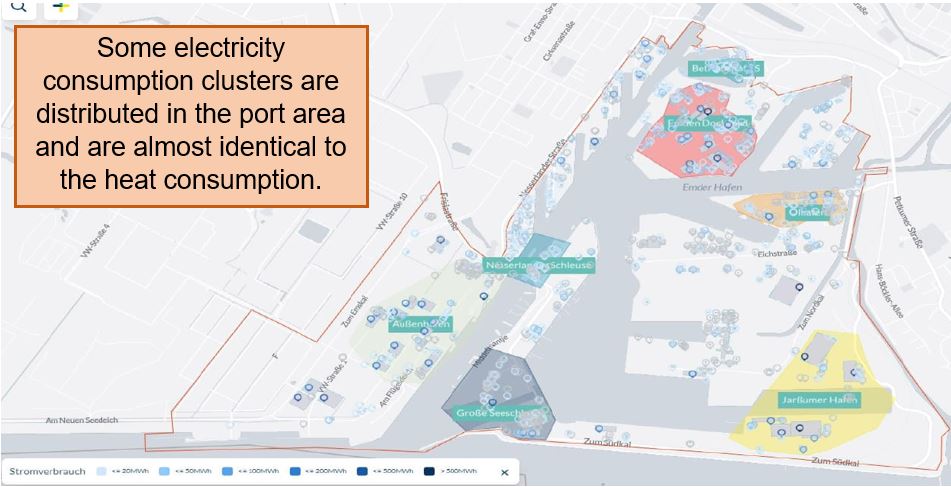
Electricity Consumption, Port of Emden.
Source: Potential analysis, NETTCon Energy (2023)
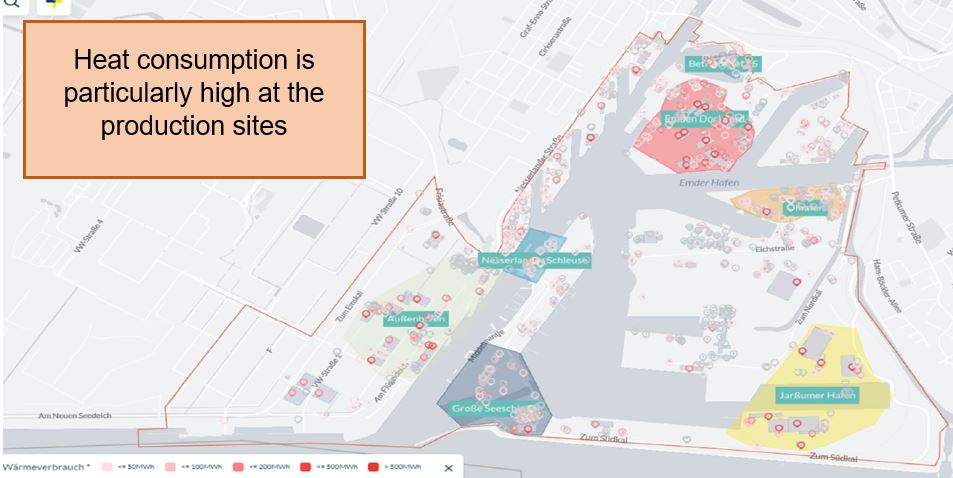
Heat Consumption, Port of Emden.
Source: Potential analysis, NETTCon Energy (2023)
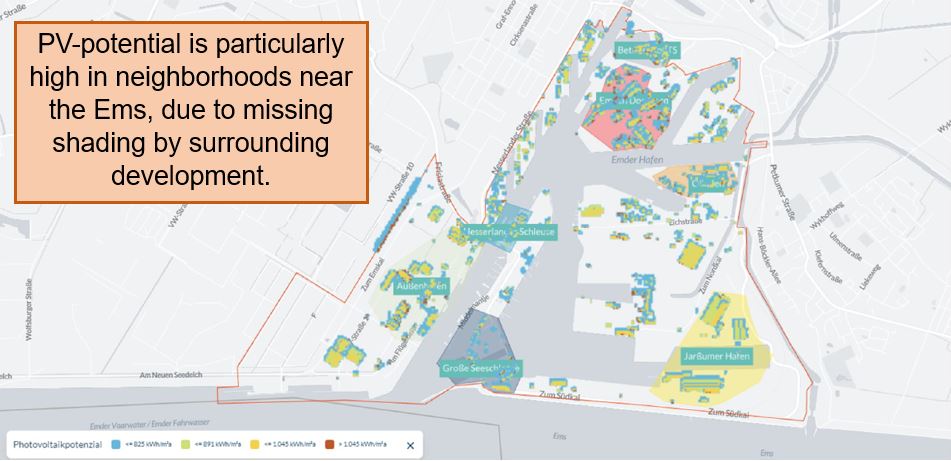
PV-Potential, Port of Emden.
Source: Potential analysis, NETTCon Energy (2023)
Jens Kampen (Niedersachsen Ports GmbH & Co KG) provided the participants with a detailed insight into the planned test fields at the port of Emden (#1 small-scale wind turbines, #2 energy self-sufficient work pontoon, #3 harbor water heat pump, #4 foil PV/flexible solar panels).
In the area of wind power, small-scale systems with rotor diameters of max. 1.7m and an output of 0.6 - 1 kW (1800 - 2050 kWh at 6m/sec) are tested. The manufacturer's data is also compared with NPort’s own measurements. This serves to assess the economic viability of future investment decisions.
A planned port water heat pump could largely cover the heat requirements of the port pumping station in the future. One challenge when using harbor water is fouling by organic material on filters and pipes (e.g. smallpox, algae formation). First solutions overcoming this challenge are available on the market and are to be validated in real operation at NPorts.
Photovoltaic films provide a solution for roofs with statics that do not allow conventional heavier PV-systems. Film solutions can be used on a larger variety of structures, now offer guarantees of up to 25 years and are almost no longer inferior to rigid PV solutions in terms of guarantees.
Maraike Pommer (FRISIA Aktiengesellschaft Reederei Norden-Frisia), spoke about the sustainability approaches of the company NORDEN FRISIA. A broad-based service company that acts as an island supplier: With twelve ferries, passenger and freight ships, it serves the islands of Norderney and Juist on a year-round scheduled service from Norddeich in Germany. Other areas of activity include the management of parking spaces in Norddeich and the provision of other maritime services from waste disposal shipping to burials at sea.
For FRISIA, the transformation into a green company is a challenge that is addressed with a strategic plan: The first electric catamaran is currently under construction (up to 150 passengers) and is intended to contribute to the decarbonization of the corporate group. The catamaran has a battery capacity of 1800 kWh. In the future, the energy will come from FRISIA’s own solar system with an output of 1.7 MW, installed on car parking spaces. An own energy grid is being planned accordingly to transport energy needs from production to consumption sites. Around 600 charging stations (3.7 kW) are to be built under the carports with the solar roofs. An intelligent charging management system distributes the energy generated between the cars prioritized according to the departure date and the electric catamaran's schedule.
In the future, bidirectional charging could expand the system. The batteries of the electric vehicles would then also be available as storage in the overall system.
The event clearly showed that we can only solve the general climate challenges only together. Further, it is important to divide major challenges such as the climate crisis into many small, manageable partial solutions. This counteracts personal repression, actions are supported and new opportunities become visible. It is also important to be aware that market-ready solutions already exist and competitors becoming/ are also increasingly active.
This makes working with a wide range of actors, sharing information and experiences and sometimes simply taking action and trying things out all the more valuable.
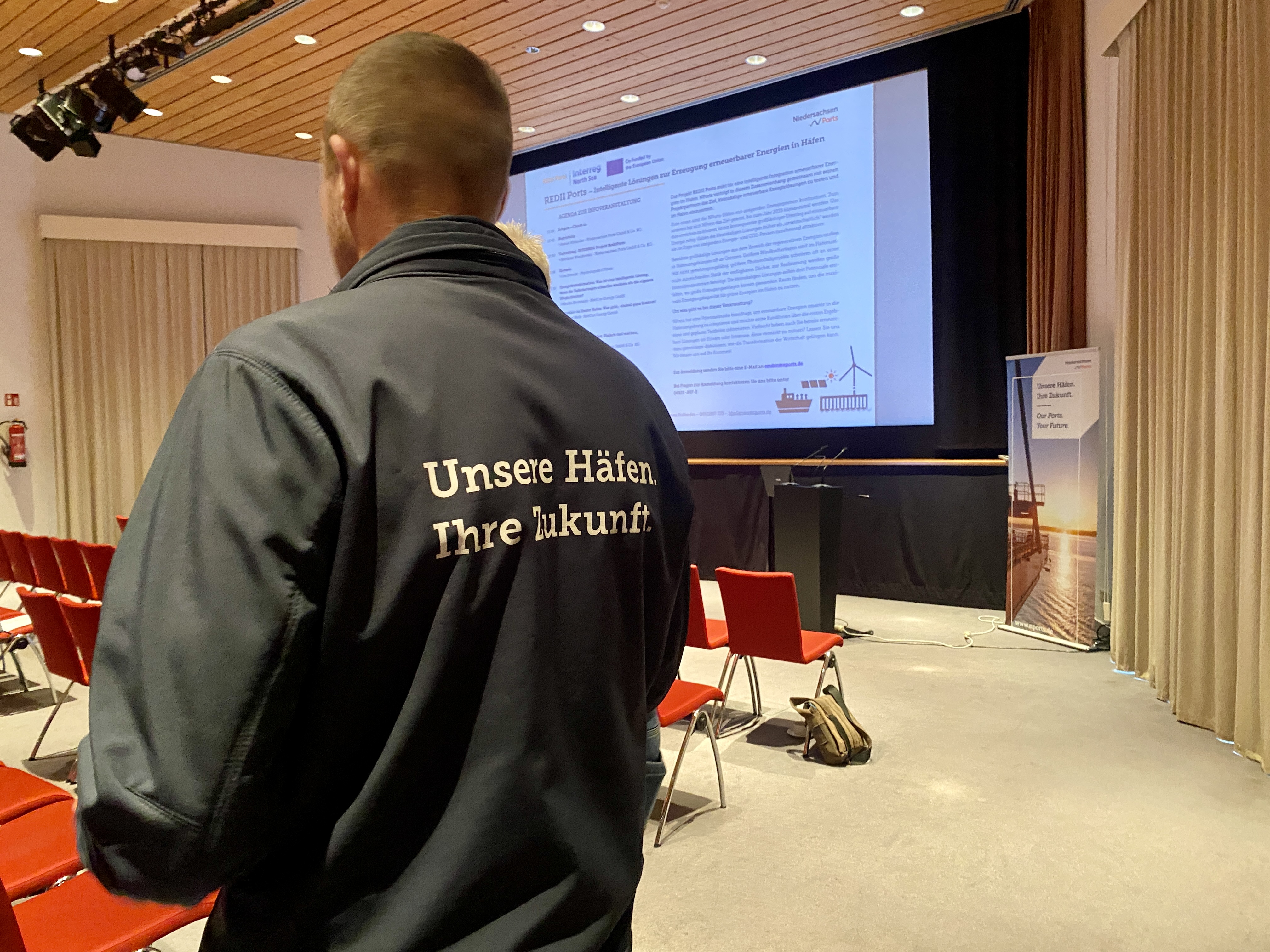
Just before the event started.
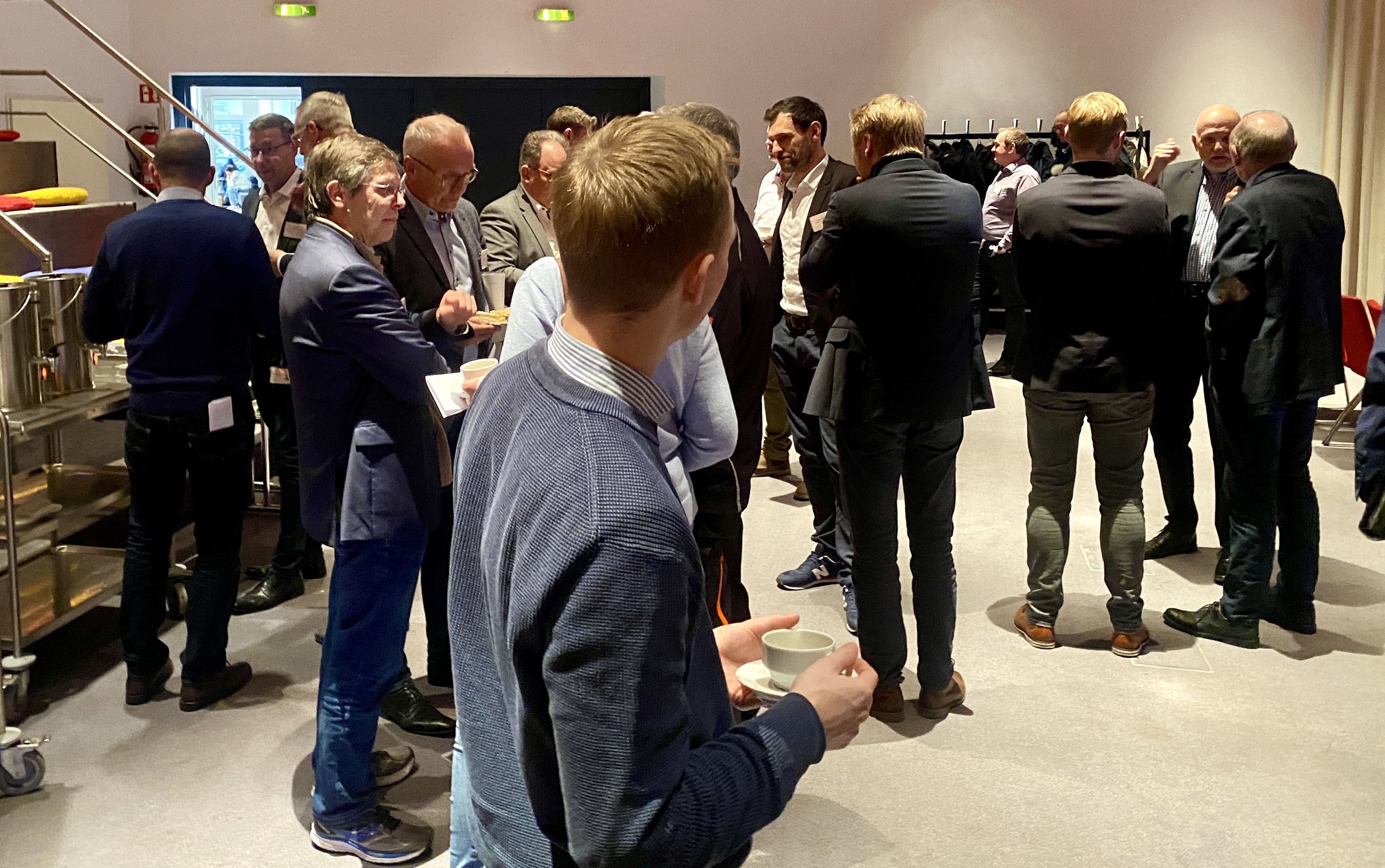
Participants during networking.
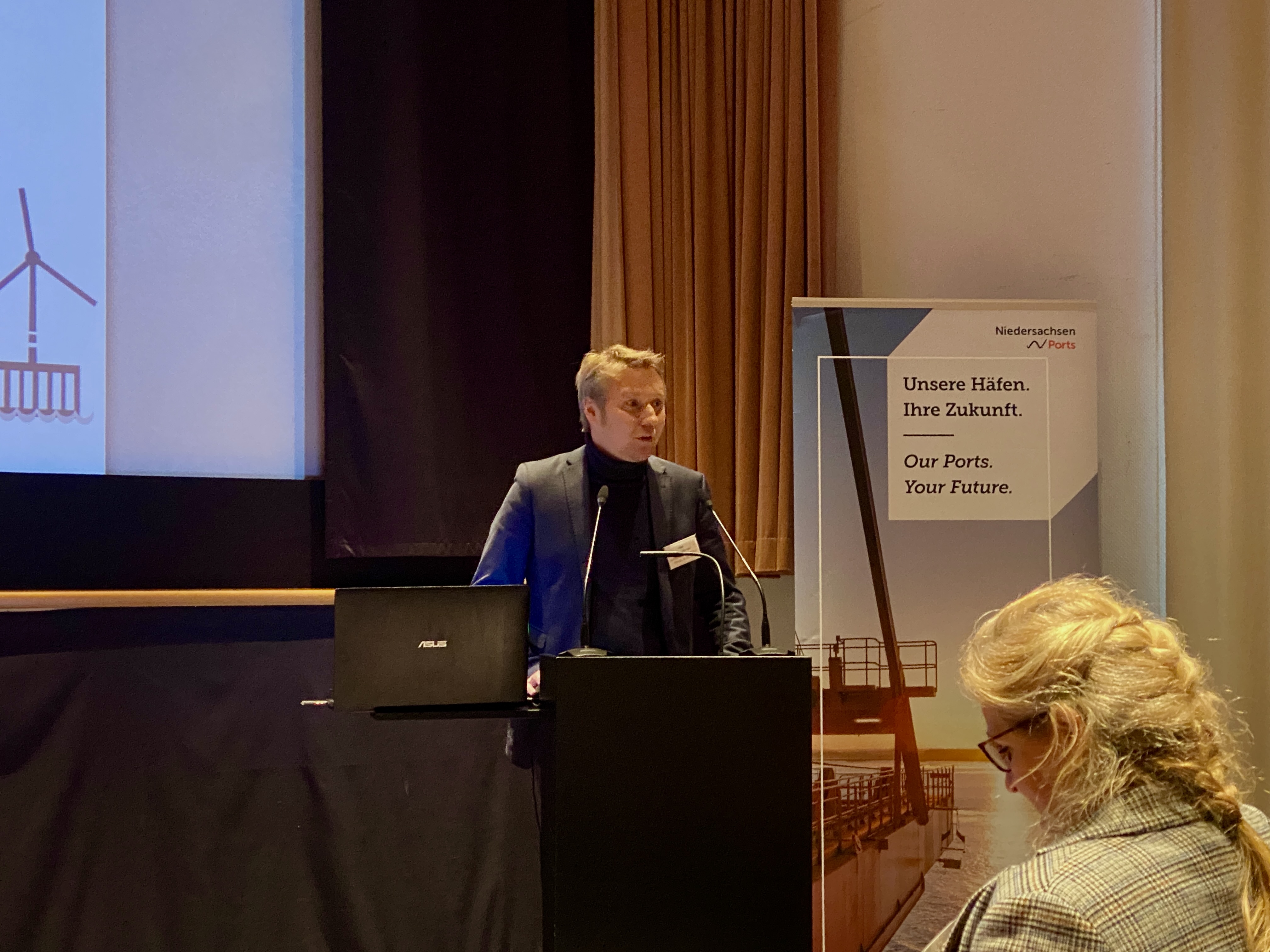
Aiko Hollander (Niedersachsen Ports GmbH & Co KG), welcomed the participants.
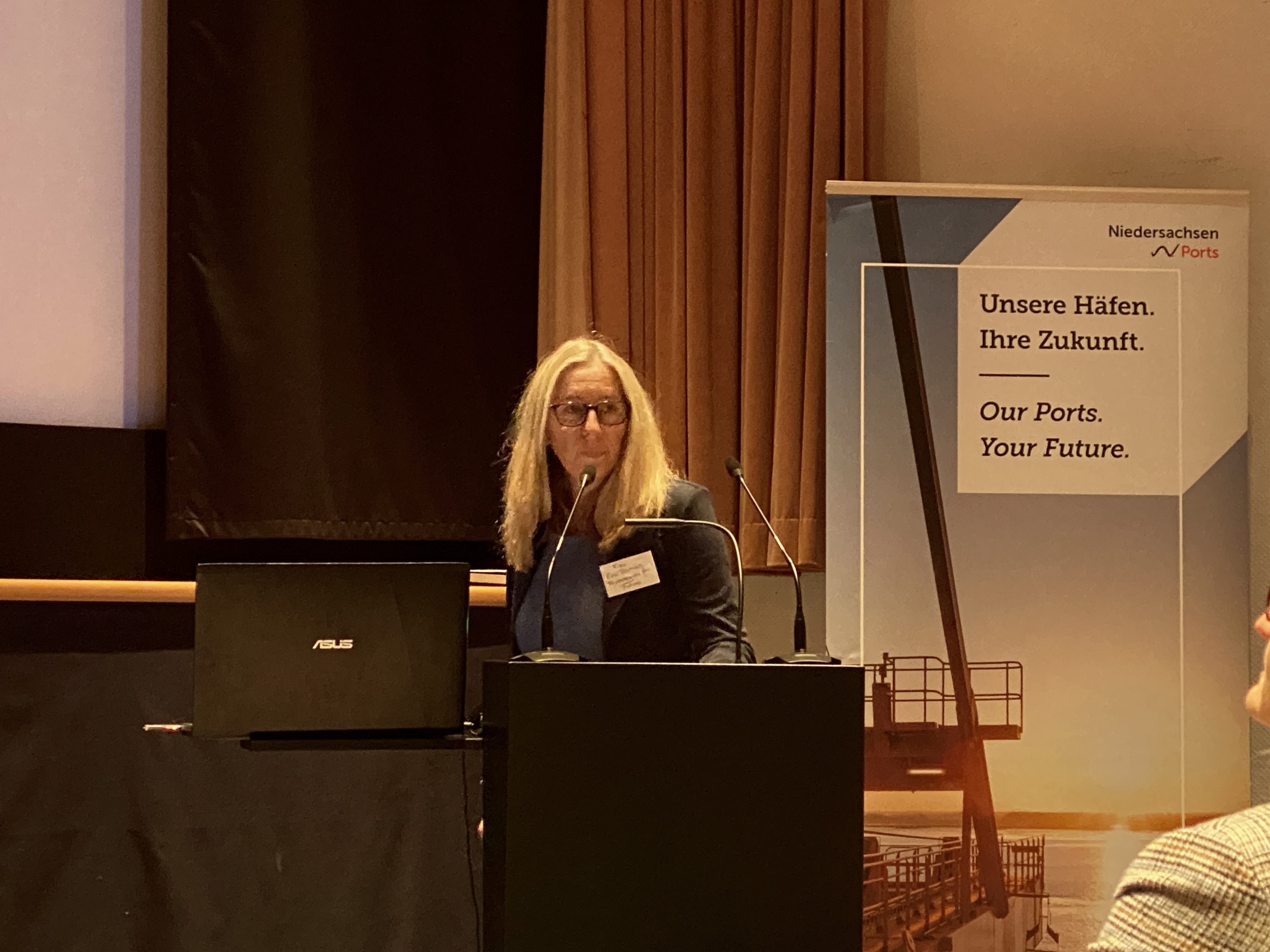
Eva Romeis (Psychologists 4 Future).
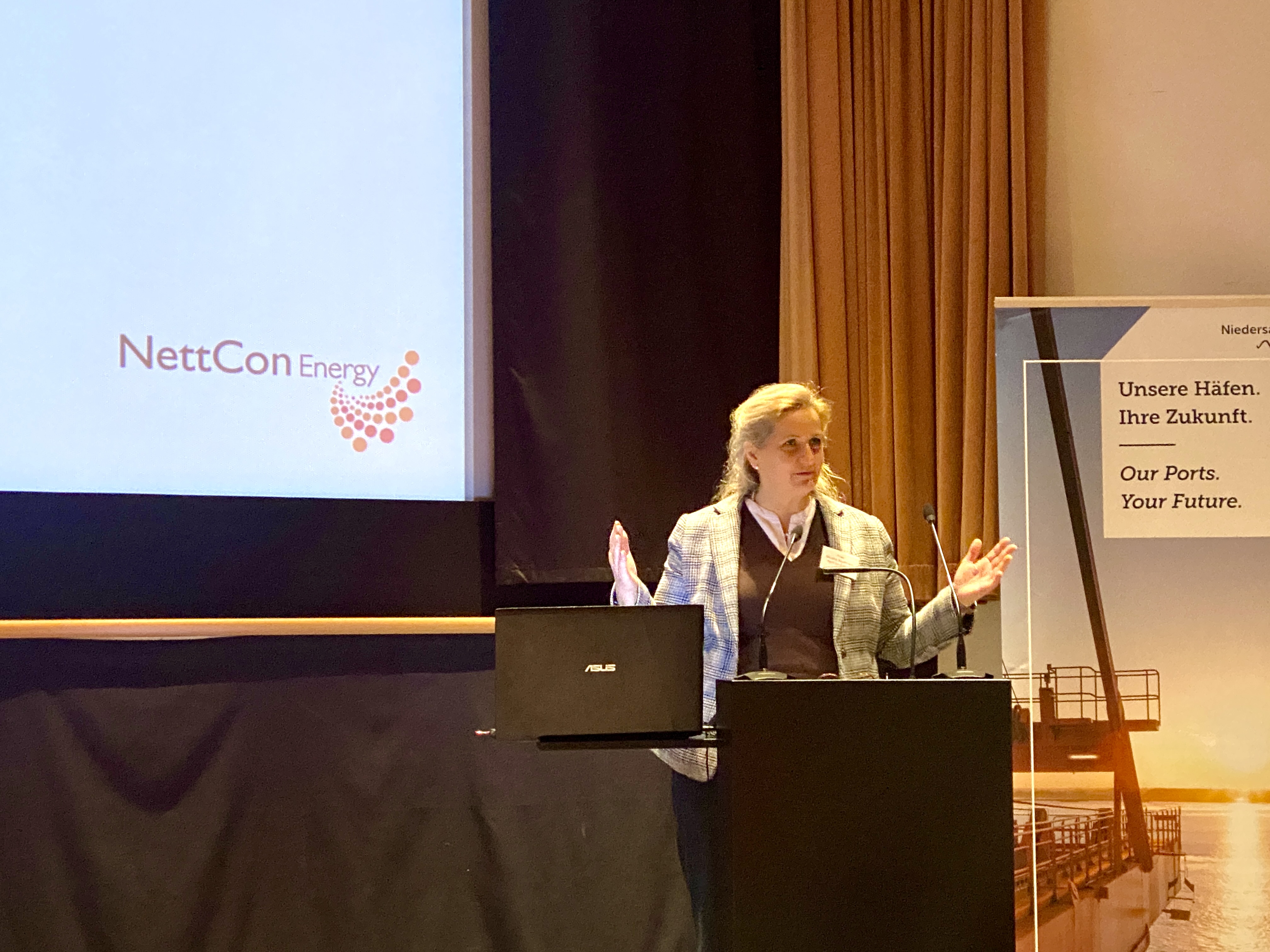
Monika Noormann (NettCon Energy GmbH)
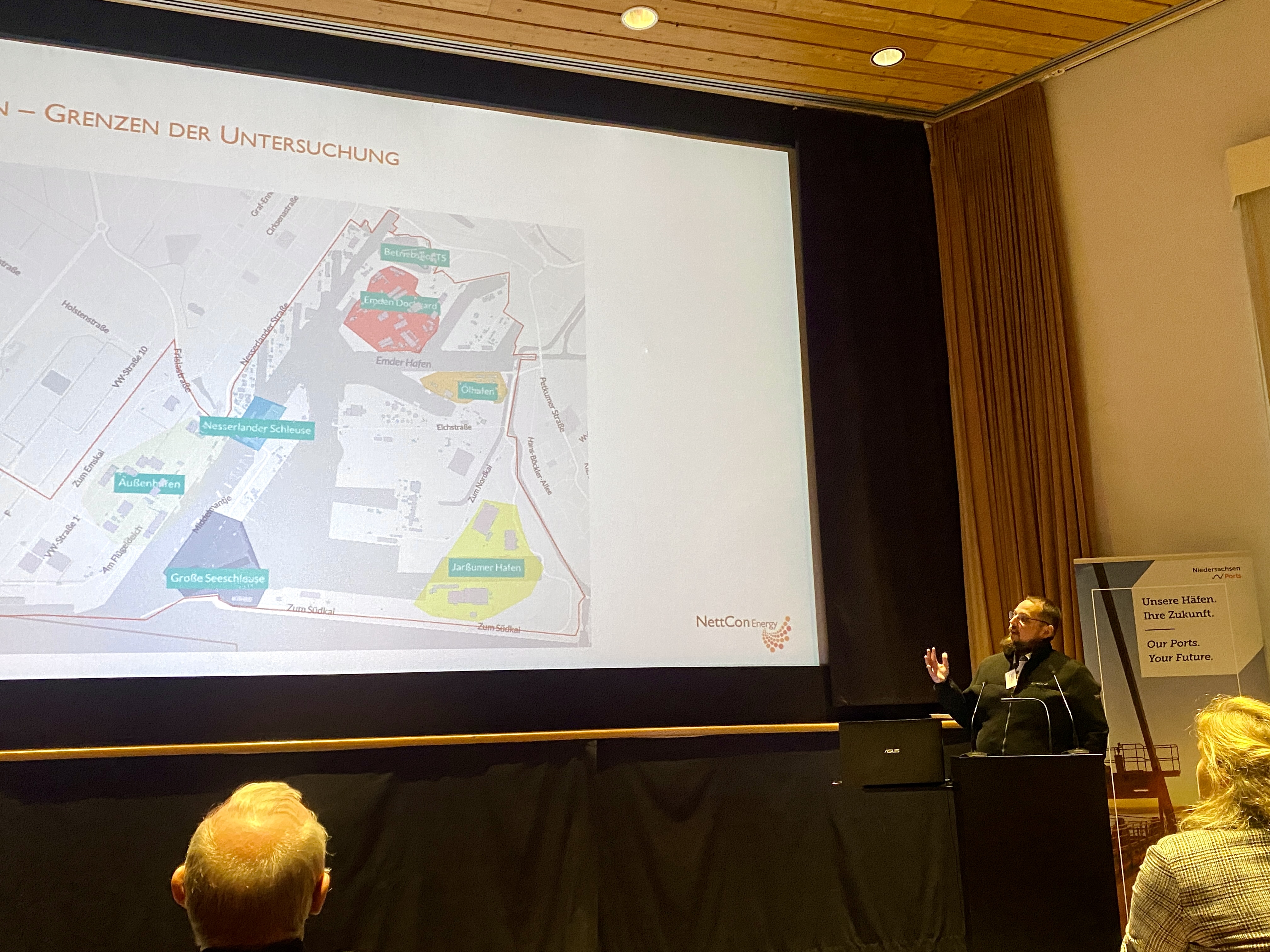
Mathias Muth, NettCon Energy GmbH.
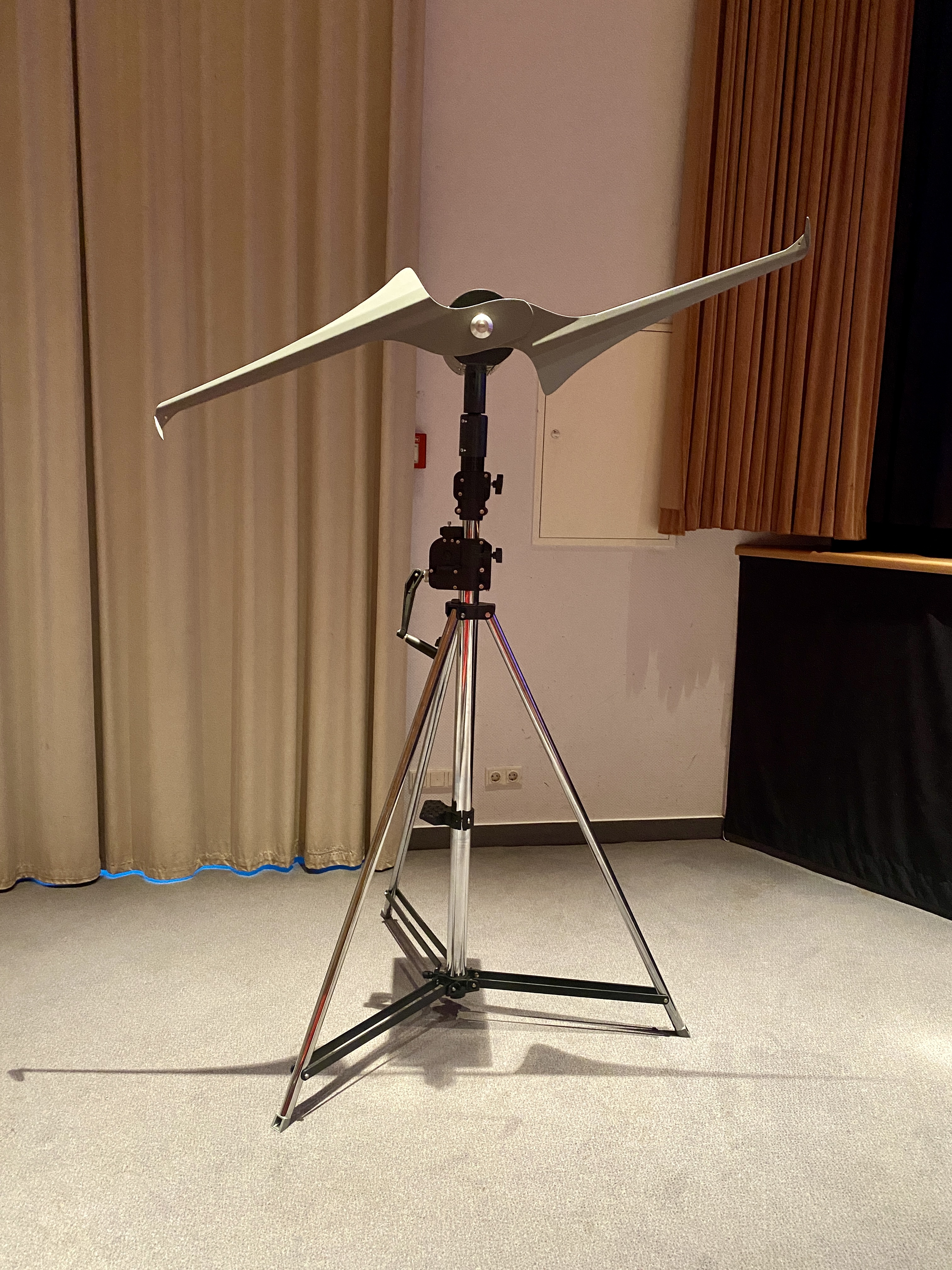
Small scale wind energy solution.
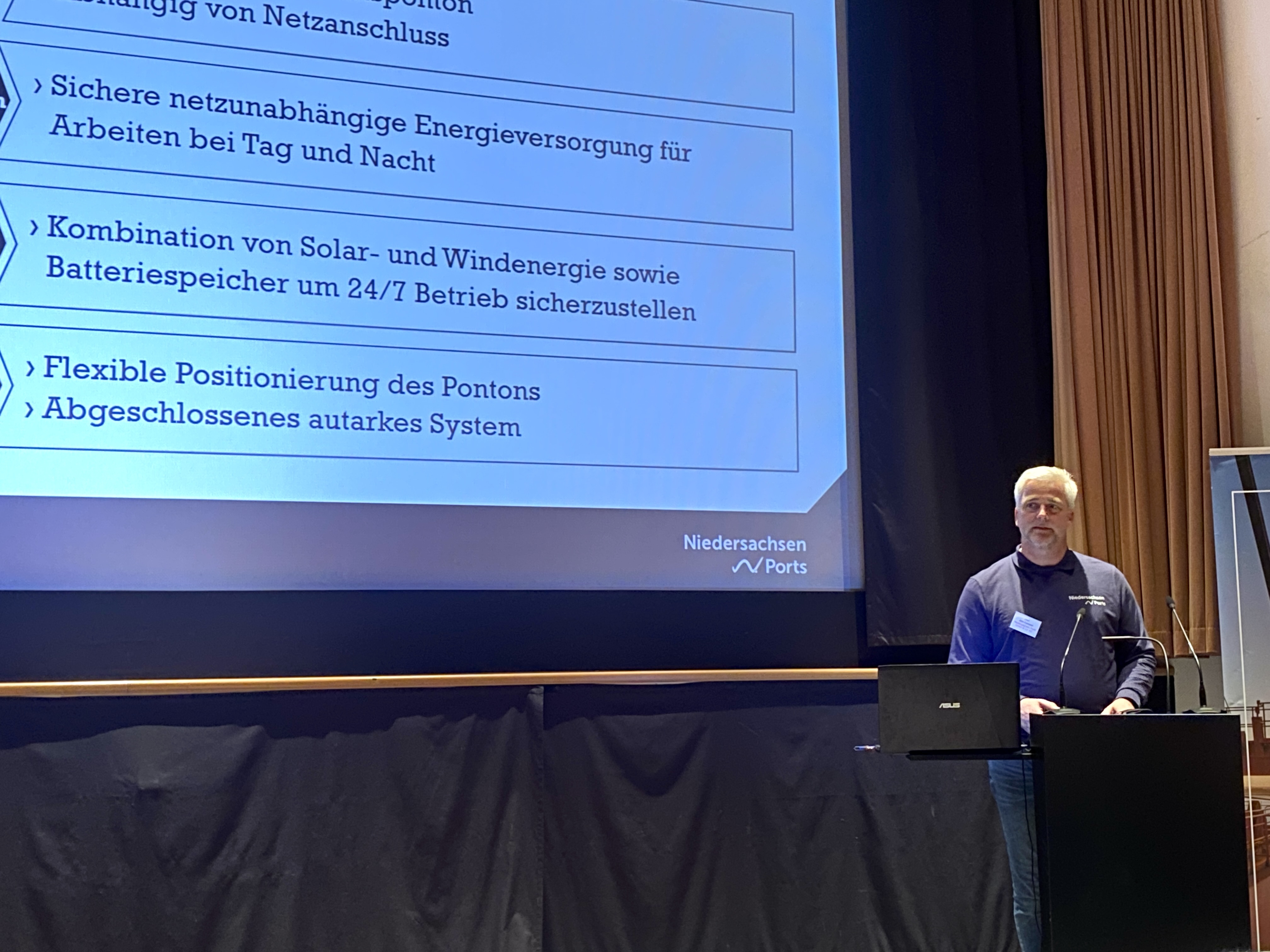
Jens Kampen, Niedersachsen Ports GmbH & Co KG.